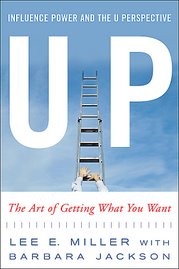
With employment having declined for the past nine consecutive months, the job market is weaker than at any time since 9/11.
In September, the economy shed 160,000 jobs. Those employment numbers are likely to get worse before they get better. What do you do if you unexpectedly find yourself without a job? Consider starting your own business.
After working on Wall Street for 18 years, Deborah Jack was suddenly let go from her six-figure job as part of a major downsizing. The Fort Lee resident began looking for similar jobs in financial publishing but wasn't having any luck.
So Jack went back to something she had considered years earlier -- helping to care for people's pets. After all, even when times are tough, people still have to take care of their pets. But instead of starting from scratch, she decided to open a Fetch Pet Care franchise, which provides in-home overnight or daily care for pets.
Becoming a franchisee, rather than opening her own business, provided her with support, training and marketing. In a little more than two years, Jack has built a healthy business and is happy with her decision, doing something "she never would have dreamed she would be doing just two years ago."
Starting your own business is not for the faint of heart. Each month, 464,000 people in the United States start new businesses, according to the United States Small Business Administration. Approximately 50 percent of those new businesses fail in the first five years. If you want to be among the 50 percent who succeed, you need "money and knowledge," said Susan Scherreik, director of the Center for Entrepreneurial Studies at Seton Hall University in South Orange.
When starting out, you can get money from your savings, friends and family; knowledge you get wherever you can.
Do your homework. Research the business you want to go into. Go to trade shows. Take workshops at a local university. The New Jersey Department of Labor offers a program for entrepreneurs, in which you can enroll while receiving unemployment benefits.
Other resources available to aspiring entrepreneurs are Score, a national nonprofit counseling agency, and the U.S. Small Business Administration. You also need to develop a network of knowledgeable advisers who can help every step of the way.
These may be people you know or people you meet attending workshops or through the resources mentioned above. In addition, if you go the franchise route, you can get advice and support through the parent organization.
Not everyone is cut out to own a business. It goes without saying that hard work and determination are required. You have to be comfortable taking risks, although successful entrepreneurs know how to minimize those risks. Most important, Scherreik says, "You can't be afraid of failure. Every new business owner makes mistakes, but you have to learn from them and make adjustments."
About a year ago, Kevin Kamenski, a retail manager for Conde Nast, was laid off. A former professional hockey player who had played six years in the minor leagues, he had always dreamed of putting his knowledge and love of hockey to good use. So he viewed the layoff as an opportunity.
Kamenski founded Elite Sports Academy in Montville, a hockey training facility with a 1600-square-foot synthetic ice rink, where he offers coaching to children as young as 4, right through to college players and adults in recreational leagues.
He described his experience as "good but scary for someone used to getting a regular paycheck." Kevin said he has "never worked harder, but has never been happier."
A veteran human resources executive, Lee E. Miller is the author of "UP: Influence Power and the U Perspective -- The Art of Getting What You Want." He is a career coach and co-founder of YourCareerDoctors.com, a website devoted to career success. Mail questions to Lee@YourCareerDoctors.com.


No comments:
Post a Comment